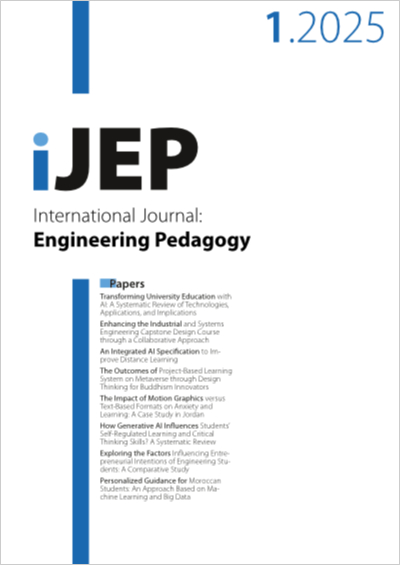Transforming University Education with AI: A Systematic Review of Technologies, Applications, and Implications
DOI:
https://doi.org/10.3991/ijep.v15i1.50773Keywords:
Machine Learning, AI, Natural Language Processing, Intelligent Tutoring Systems,, Adaptive Learning, Educational Outcomes, Systematic Review, PRISMA guideline, Theoretical FrameworkAbstract
This systematic literature review explores the integration of artificial intelligence (AI) technologies such as intelligent tutoring systems (ITS), machine learning, natural language processing, and adaptive learning platforms in university education. Following Preferred Reporting Items for Systematic Reviews and Meta-Analyses (PRISMA) guidelines, we evaluated peer-reviewed articles, case studies, and government reports from 2015 onwards. The results demonstrate that AI technologies not only enhance personalized learning and educational outcomes but also streamline administrative functions, transforming educational practices. However, challenges such as ethical issues, data privacy, and algorithmic bias remain. The review underscores the importance of theoretical frameworks like constructivist learning theory and the TPACK framework for effective AI integration. Recommendations are provided for educators, administrators, and policymakers to ensure responsible AI use in university settings. This paper offers insights into the current capabilities and future prospects of AI in higher education, promoting ongoing research and strategic implementation.
Downloads
Published
How to Cite
Issue
Section
License
Copyright (c) 2024 Dinara Кazimova , Gulmira Tazhigulova, Gulmira Shraimanova , Anatoly Zatyneyko , Adilzada Sharzadin

This work is licensed under a Creative Commons Attribution 4.0 International License.



